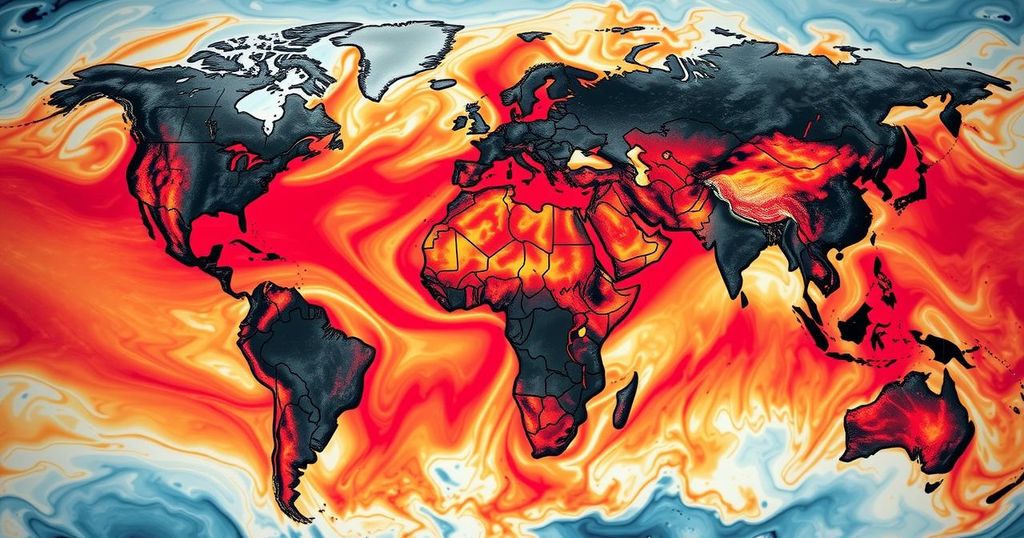2024: A Record-Breaking Year for Global Temperatures and Sea Ice Decline

In 2024, the planet recorded its highest temperatures ever, exceeding 2.32°F (1.29°C) above the 20th-century average, with significant declines in Antarctic sea ice coverage. Other regions including Africa, Europe, and North America experienced their warmest years. Upper ocean heat content also reached record levels, indicating an ongoing climate crisis requiring global action.
The year 2024 has officially been recorded as the warmest year globally, as reported by scientists from NOAA’s National Centers for Environmental Information (NCEI). This concerning milestone was accompanied by a significant decline in Antarctic sea ice coverage, which reached its second-lowest extent on record. According to NOAA’s annual climate report, the average temperature across land and ocean surfaces in 2024 surpassed the 20th-century average by 2.32°F (1.29°C), marking the highest temperature since NOAA’s records began in 1850.
Understanding the dynamics of climate change is crucial for grasping the significance of this report. Global temperatures have risen markedly due to human activities, primarily fossil fuel burning, which increases greenhouse gas concentrations in the atmosphere. The year 2024 not only reflects anomalies in temperature but also emphasizes the underlying shifts within Earth’s climatic systems, particularly as they relate to sea ice extent, ocean heat content, and extreme weather patterns.
In summary, the year 2024 has set a concerning precedent as the warmest year on record, accompanied by unprecedented lows in Antarctic sea ice coverage. The data reflect a persistent trend of rising temperatures and changing climate patterns that demand urgent attention from global leaders and the scientific community alike. Continued monitoring and comprehensive actions are imperative to address the challenges posed by climate change.
Original Source: www.noaa.gov







